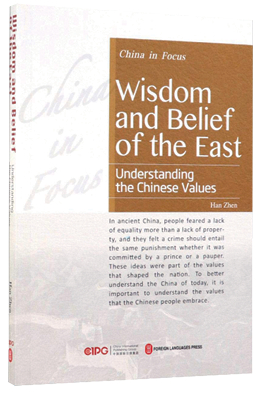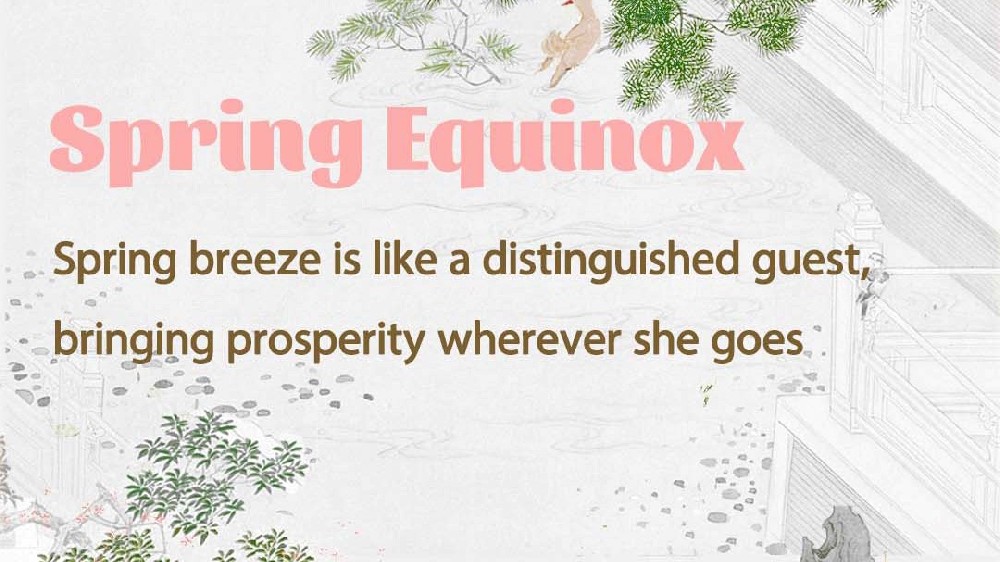Valuing the Core Values

Wisdom and Belief of the East
– Understanding the Chinese Values
Author: Han Zhen
Price: RMB 95
Paperback, 207 pages
Published by Foreign Languages Press
China is increasingly taking center stage in the international arena, and people from around the world are particularly interested in the path the country has taken and the direction it is heading in. More importantly, they want to know what China can contribute to the world. All this curiosity may be boiled down to a seemingly simple question: How to understand China? However, it is not a question that is easily answered in just a few words.
The book Wisdom and Belief of the East has given a glimpse into the core values that the Chinese people cherish, which can be reflected in the way of the governance of the Communist Party of China (CPC), as well as the policies and development path it adopts.
The author, Han Zhen, is a professor of Philosophy at Beijing Normal University and is well-known for his cultural expertise.
“In ancient China, people feared a lack of equality more than a lack of property, and they felt a crime should entail the same punishment whether it was committed by a prince or a pauper. These ideas were part of the core values that shaped the nation. To better understand the China of today, it is important to understand these values that the Chinese people embrace,” he writes at the very beginning of the book.
In the preface, he also pointed out that the age-old idea of harmonious coexistence is the cornerstone of the concept of “a community with a shared future for humanity.”
“To understand contemporary Chinese values, we must also have an appreciation for the multi-faceted exchanges Chinese people have with other peoples of the world,” he wrote, indicating that the Chinese culture has always grown stronger through exchanges and clashes with other cultures. The world will have more opportunities for peaceful development if it adopts the Chinese value of “harmony in diversity.”
The contents of the book are organized into four chapters – comprising of “Building a Prosperous, Democratic, Culturally Advanced and Harmonious Country,” “Building a Society of Freedom, Equality, Justice and with the Role of Law,” “Cultivating the Civic Virtue of Patriotism, Dedication, Integrity and Friendliness,” and “Building a Community with a Shared Future for Humanity.”
In the first chapter, the core values discussed are those pertaining to prosperity, democracy, civility, and harmony of the Chinese nation – which are a reflection of the will of the nation and the common desire of its people. To realize these values, China has to harness all its power to build a modern socialist country and contribute to the world’s peaceful development.
In the second chapter, “Freedom, equality, justice and the rule of law”, which are also values of great significance for China in the social sphere which are discussed in detail. The aforementioned values embody the aspirations of contemporary Chinese people and answer the key question of what kind of society is to be built.
“Patriotism, dedication, integrity, and friendliness” are the answer to the question of what kind of civic virtues the Chinese people are to cultivate. These values are thoroughly discussed in the third chapter. The author draws a conclusion that every Chinese should be deeply patriotic, passionately devoted to work, full of integrity, and genuinely amiable in interpersonal relationships so as to make China and its society more prosperous.
The last chapter carries out an in-depth analysis of China’s peaceful development, which is seen as an event of great significance at the turning of the century, as China’s population is one fifth of the world’s total. Peaceful development has enabled China to focus on its own development, shake off poverty, and become strong. And it will also be the prerequisite for the country to realize its national rejuvenation. What’s more, it has brought opportunities for the world.
The author further noted that global multi-polarization, economic globalization, informatization, and cultural diversification are irresistible trends in the world today. Countries are becoming increasingly interconnected and interdependent, and there are many common challenges for people from different regions with different cultures. Unconventional security threats such as food security, resource shortage, climate change, population explosion, epidemics, and transnational crimes pose severe challenges to the international order and human survival.
“The rise of China brings benefits not only to the Chinese nation but also to the entire human society,” the author concludes in the book. Thereby, the book also serves as a window to showcase the unique charm of the Chinese culture, which respects differences among civilizations and learns from others.
“China’s history depends on the uniqueness of the Chinese people and on many other factors. But China’s enormous success has majorly grown out of China’s long-standing and institutionalized values and methodologies, which have been the code of conduct of the Chinese people for generations,” said Ann Lee, a former visiting professor at Peking University, an expert on China’s economic relations, and the CEO of Coterie – a new technology investment consortium. She agrees with Han’s conclusion while talking about China’s firm commitment to independent development in her book What the U.S. Can Learn from China: An Open-Minded Guide to Treating Our Greatest Competitor as Our Greatest Teacher.
Related articles
-
 Demand for Chinese stories turns a page at Italian book fair
Demand for Chinese stories turns a page at Italian book fairMore
-
 Book prize spotlights uniqueness
Book prize spotlights uniquenessMore
-
 A global call for clues about the translator of Lao Zhang's Philosophy
A global call for clues about the translator of Lao Zhang's PhilosophyMore
-
 Age of creativity knows no boundaries for writer amid growing fan base
Age of creativity knows no boundaries for writer amid growing fan baseMore
-
 A new novel about the spiritual changes of a generation published
A new novel about the spiritual changes of a generation publishedMore
-
 Tres Tristes Tigres translated to Chinese
Tres Tristes Tigres translated to ChineseMore
